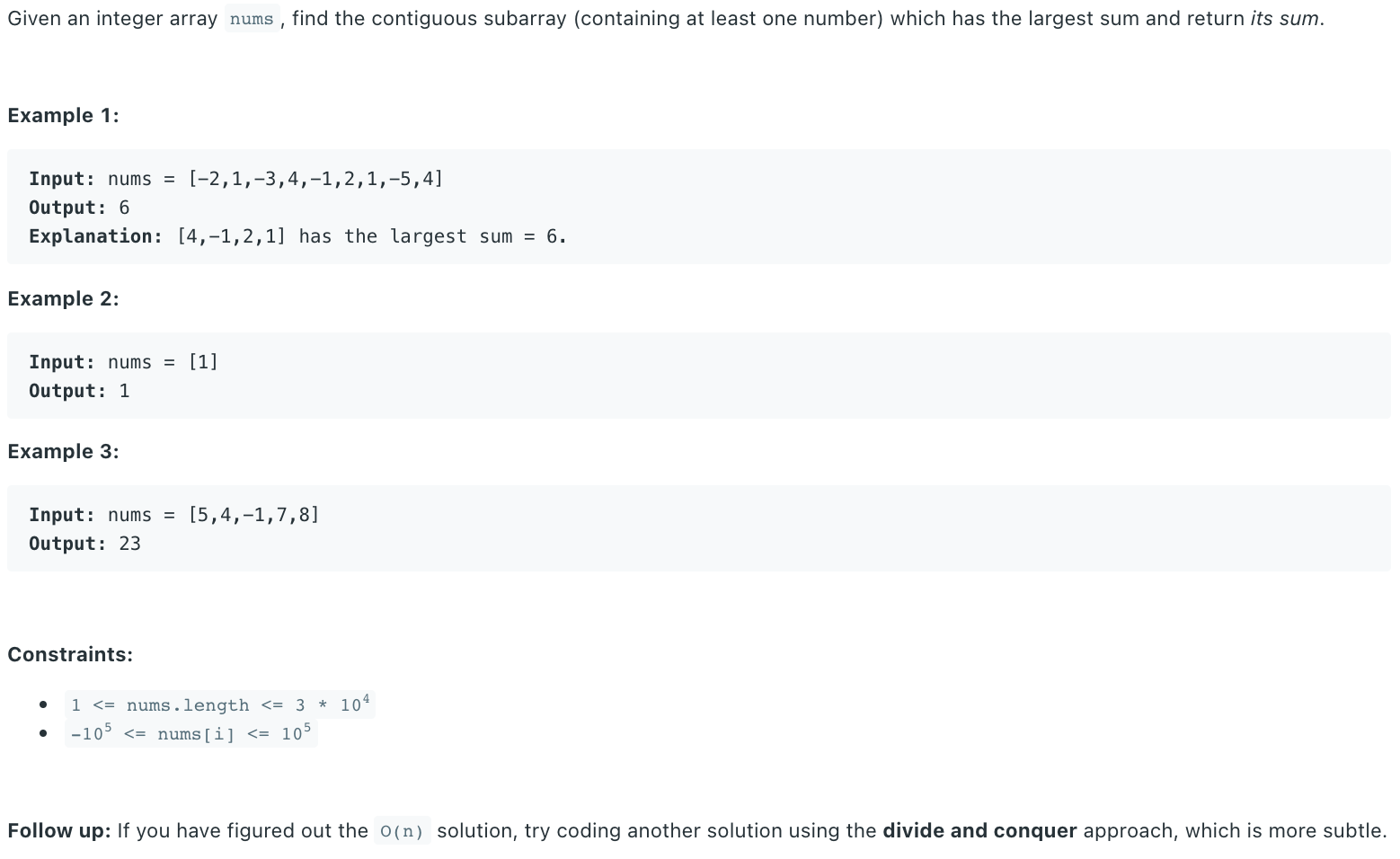Maximum Subarray
franklinqin0 ArrayPrefix SumDPD&C

# Solution
# Brute Force (TLE)
Complexity
time:
space:
def maxSubArray(self, nums: List[int]) -> int:
n = len(nums)
res = nums[0]
for i in range(n):
csum = nums[i]
for j in range(i, n):
if i == j:
csum = nums[i]
else:
csum += nums[j]
res = max(res, csum)
return res
1
2
3
4
5
6
7
8
9
10
11
12
13
14
2
3
4
5
6
7
8
9
10
11
12
13
14
# Prefix Max
Pick the locally optimal move at each step, and that will lead to the globally optimal solution.
Iterate over the array and update at each step:
- current element
num - current local maximum sum
csum- either start a new array
num - or continue the old array
csum + num)
- either start a new array
- global maximum sum
res
Complexity
time:
space:
def maxSubArray(self, nums: List[int]) -> int:
n = len(nums)
csum = res = nums[0]
for num in nums[1:]:
csum = max(num, csum + num)
res = max(res, csum)
return res
1
2
3
4
5
6
7
8
2
3
4
5
6
7
8
# DP (Kadane's algorithm)
DP logic:
- if
nums[i-1] > 0, includei-1th element - if
nums[i-1] <= 0, start a new array fromith element
Modify the array to track the current local max sum, then update the global max sum res.
Complexity
time:
space:
def maxSubArray(self, nums: List[int]) -> int:
n = len(nums)
res = nums[0]
for i in range(1, n):
if nums[i-1] > 0:
nums[i] += nums[i-1]
res = max(res, nums[i])
return res
1
2
3
4
5
6
7
8
9
2
3
4
5
6
7
8
9